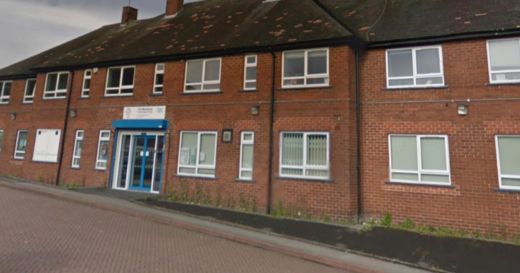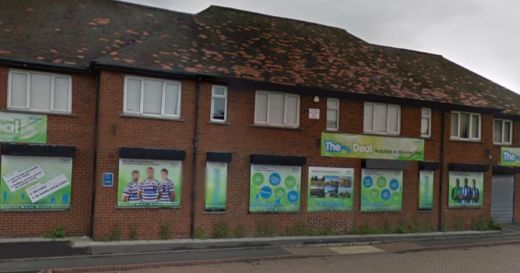It's misleading to describe communities as 'left behind', we need to think how we will grow Neighbourhood Democracy.
Author: Angela Fell
This short speech was given at an event that Local Trust ran in partnership with the Big Tent Ideas Festival on Levelling up ‘left behind’ Britain – the importance of a hyper-local focus in April 2021. Angela Fell was invited to speak on behalf of the Neighbourhood Democracy Movement.
I am from Wigan. A place where the people are the greatest assets, where guests notice the warm welcome they receive. We also happened to beat Man City with a Watson goal in the 2013 FA cup final and we see today that the story in football, mirrors that of neighbourhoods; some have pulled away taking the riches with them.
I grew up in one of the two Wigan neighbourhoods on the list. The other I worked in, testing Hilary Cottam's Radical Help ideas alongside families. I’m a trustee of a community organisation that’s based within a third, St Oswald in Sefton.
We describe neighbourhoods as left behind. I often wonder if over fertilised and then abandoned is more apt. If I look at the ward I grew up in I don’t think there’s been a funding initiative that has passed it by over the last 30 years. It would be interesting to add up the total money spent and wonder instead about what might have happened had it been given directly to residents. Maybe they’d have the ingredients we see as being missing. Instead we’ve had periods of feast or famine, with rapid resource extraction over the last 10 years, often under the banner of savings and transformation.
Where I grew up, the boarded up family centre, was converted into a youth centre with investment from the youth crime action fund. It had a change of use over 6 years ago and is now home to place based professionals with no community access.

The former youth centre
The housing office was closed. A place that was hugely missed by local people. It was no wonder they felt angry when the Deal in Action turned up painting new road markings and hanging baskets and taking photographs outside a boarded up building.

The former housing office
We see too, everywhere, capital investment from Sure Start programmes that was designated for parents, taken on by schools with no parental access. Community schools with no community access. Local authority buildings that cannot be used. I remember working for a regeneration initiative in the 1990s - the one thing the neighbourhood wanted was the return of the local bus service after 6pm. Not viable said the service provider. For them it was a volunteer led community transport service that was always scratching around for funding and searching for evening drivers.
Left behind, over fertilised, neglected, or oppressed?
I met friends who were cheering on citizen-led responses to the pandemic in Spring 2020 through Cormac Russell, and supported by the Centre for Welfare Reform and its founder Simon Duffy and friends we founded the Neighbourhood Democracy Movement to shine a light on neighbourhoods that were rekindling their function - the producers of health, wealth and care rather than consumers or passive recipients.
The service and volunteer response was clear to hear, the neighbour story was less visible. We were disappointed to see the mutual aid neighbour narrative turn into a call for a volunteer passport. Volunteering is an important subset of community; being in relationship with your neighbours, discovering, connecting and mobilising what you have is the primary unit of change. We are danger of Neema at No.42 needing a DBS and a risk assessment to visit Ethel at No.48.
The movement is shaped by two beliefs:
First of all
Neighbourhood based democracy, social action and community participation and decision making is a critical component of social justice and that deliberative and participatory models strengthen representative democracy.
And secondly
Citizens, neighbourhoods and communities know what is best for them and should be decision makers.
We recognise too that social, ecological and economic problems are entwined and cannot be understood in silos.
We take action in the following 3 ways:
It’s important too to highlight intergenerational community trauma as it impacts on methodology. Many over fertilised neighbourhoods will have had more than their fair share of local children and adults extracted. When we talk about growing civic engagement we need too to hold in mind the challenge of keeping your head above water when living with constant insecurity and stress whether that be food, housing, finance - or in other words poverty and its toxic impacts. Often too, with the bright light of services shining on you. Imagine growing up and believing that well intentioned charitable people bring you food, clothes and Christmas presents rather than the people that you live with or that there’s someone else in your life who tells your parent how to parent properly.
Reinvesting in community development work - rediscovering, reconnecting and making the invisible visible is a crucial prerequisite to community organising and wealth building. Starting with what’s strong not wrong. We’ve unintentionally become a nation of fixers starting with a needs analysis or a risk stratification.
Methodology matters. Few people like meetings, more people like parties. Structures that mirror the system are like picking the netball team, some people never get picked, some don’t like the game or cant afford the trainers. It’s easy to select those who seem most ready and able, which is an act of extraction in itself. Healing centred, restorative, non partisan participative and deliberative models underpinned by non violent communication and feminisation feel essential to flourishing forward fairly. Class needs to be considered. Betsy Leondar-Wright, in the first comprehensive study of U.S activist class cultures found that working class activists talk differently, and organise and approach problems differently to professional middle classes. Connecting with experience matters, starting with what is, is the path to what could be.
As neighbourhoods grow power, like hydraulics, there’s a shift. At the Centre for Welfare Reform and at the Movement we are in favour of Universal Basic Income both to enable people to join in, instead of opting out in case they get seen as being too healthy and active; and, to help thinking around the reframing of relationship between the neighbourhood and the supporting and enabling systems and services.
The movement is home to those who want to work this out together. We welcome civic society allies and local government friends to share good ideas and hope to co-produce with civil society to create alliances and campaigns that resource and support neighbourhood and community power. This work is part of a global effort to rediscover the joy of equality, diversity and citizenship through Citizen Network.
A question I always like to ask of myself is why isn't this already the world we live in?
I’ll leave you to ponder that. And in the pondering let's think carefully about how we show up in neighbourhoods with the levelling up flag. The shiny new community asset transfer is to be treated with caution and care. We must look beyond number of transfers as a measure of success.
The call for the renewal of a social infrastructure is a great one - we must resist our urge to fix - and create instead intervention centres, nudging people into behaviours with a range of evidence based interventions. This is our opportunity to shift from helper and helped to a world of reciprocity and mutuality. The opportunity to flourish forward fairly, to return power to the hands of people; rekindle community and associational life. To do that we must start with what we already have rather than what we believe is missing.
As my good friend Paul who lives and works in Firs Bromford in Birmingham says “'left behind' neighbourhoods are filled with gifts, skills, talent, passion and not wastelands! They are abundant but in ways not necessarily visible to the outsider! The process of lifting them up (or catching them up) will need a different approach - an approach of drawing this out - and not doing to and bringing in resources from elsewhere! Help shape the environment that enables neighbourhoods to flourish!”
The publisher is the Centre for Welfare Reform.
Flourishing Neighbourhoods © Angela Fell 2021.
All Rights Reserved. No part of this paper may be reproduced in any form without permission from the publisher except for the quotation of brief passages in reviews.
community, local government, Neighbourhood Democracy, England, Article